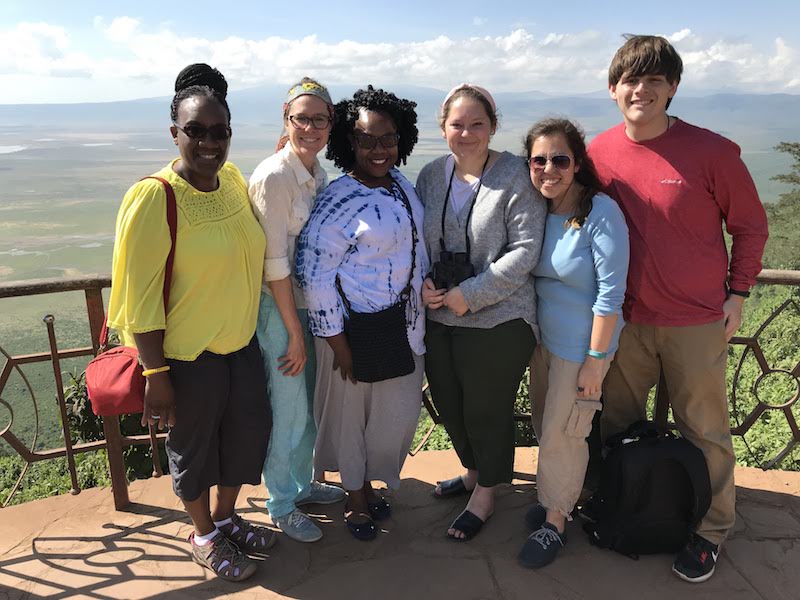
It can be easy to list the differences between a social worker and a pharmacist, but through a unique opportunity to travel to Tanzania this summer, students in Samford University’s School of Public Health and McWhorter School of Pharmacy were able to discover their two professions are more alike than they thought.
Over the course of the 17-day trip, three Master of Social Work students and one Doctor of Pharmacy student immersed themselves within the local community, working in local clinics, participating in HIV/AIDs support groups, teaching classes and more.
Rachel Hagues, an assistant professor in the School of Public Health’s Department of Social Work, and Pilar Murphy, an associate professor in McWhorter School of Pharmacy, led the trip. Hagues has been traveling to Tanzania since 2008. For the past four years, she has been collaborating with the Africa Inland Church and the local community to slowly—as funds allow—build a secondary school for girls.
“This trip was a great opportunity to further collaborate with the Africa Inland Church, which has a holistic view of community development,” Hagues said. “It was great for our students to work with them and see a bit of what that looked like.”
For several students, this was their first real-life experience with extreme poverty. “In our social work classes, we read a lot about poverty,” said LaSonya Clay, a second-year Master of Social Work student, “But on this trip, the poverty we saw was very real. It changed my perspective in a way I didn’t anticipate.”
The experience also offered a unique learning environment for the students—where the community was their classroom.
“We had the opportunity to make home visits. At one home, a woman showed us her garden and explained all of the ways she uses plants in her daily life,” Clay said. “We talk a lot in social work about using what is in the community to build the community, and this woman was doing it.”
In addition, Murphy and Hunter Johnson, a third-year Doctor of Pharmacy student, had the opportunity to shadow a physician at a local clinic and assist in a lab. “The experience was eye opening,” Murphy said. “The physician was treating diseases like malaria, cholera and typhoid—diseases we don’t learn much about because we don’t see them in the United States.”
While students had opportunities to serve in areas that aligned with their profession, the group also worked collaboratively on several projects, like teaching community classes on hygiene and disease prevention.
“It was great to see how our two disciplines overlapped,” Hagues said. “Social workers really care about educating our clients and giving them some power back in the form of education, and our students quickly learned that pharmacists ultimately care about the same thing.”
This fall, the four schools in Samford’s College of Health Sciences signed an affiliation with the Africa Inland Church that will allow the university to continue partnering with the church in the future and even expand into other disciplines.
